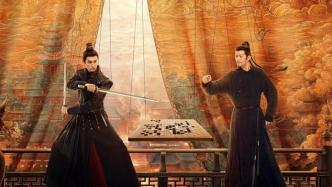
After the broadcast of "Strange Stories of the Tang Dynasty: Journey to the West" (hereinafter referred to as "Strange Stories of the Tang Dynasty 2"), the data was impressive, with a Douban score of 8.1 points, which can be called the "savior" of iQiyi, which has been in a slump for a long time.
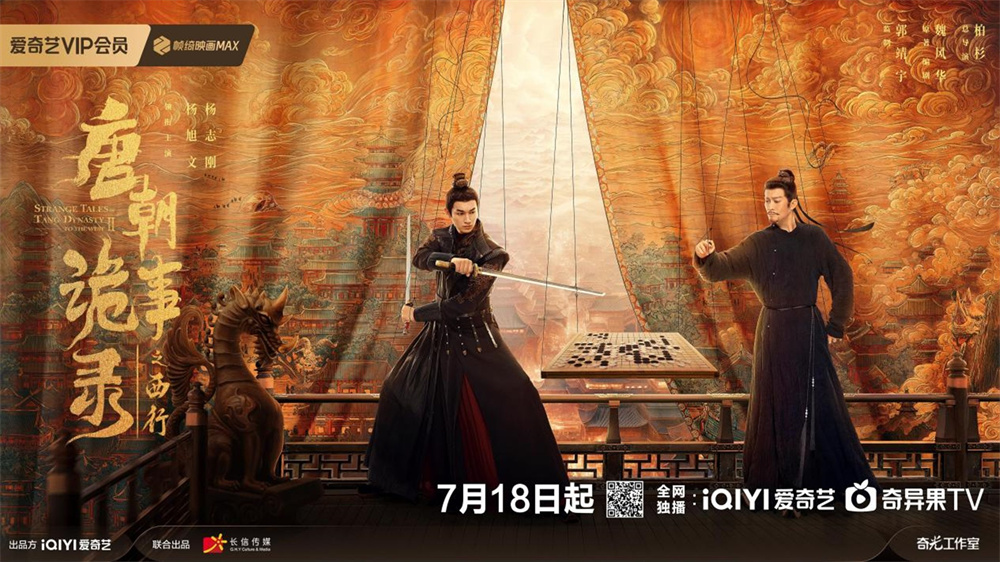
Poster of "The Strange Stories of the Tang Dynasty: Journey to the West"
"Tang Dynasty Weird Stories 2" has received generally positive reviews. The series itself is very good and the fans are also very hardworking. Because the crew is serious and responsible and is very "advisable" - many suggestions put forward by netizens have been adopted by the crew, many viewers have become "spiritual shareholders" (netizens call them "shin bones") of the "Tang Dynasty Weird Stories" series, not only giving good reviews to the series, but also fighting back against those critical voices on behalf of the crew.
I still want to tell you my impressions: from the first season to the second season, the detective part is actually the shortcoming of "Tang Dynasty Weird Stories". The first and second seasons of "Tang Dynasty Weird Stories" are good at production, three-dimensional group images, exciting fighting scenes, and good performances. In particular, they each have obvious strengths. If the strength of the first season is its "weirdness", the strange elements are refreshing; the "weird" elements of the second season are still very important, but the "Tang Dynasty legend" color is further highlighted.
Although there are many suspense, the investigation is mediocre
What are the problems with the investigation? Let’s take the third unit of “Tang Dynasty Weird Stories 2”, “Mo’s Family Store in the Snow”, as an example. This unit has only 4 episodes and is a relatively simple case in the “Tang Dynasty Weird Stories” series.
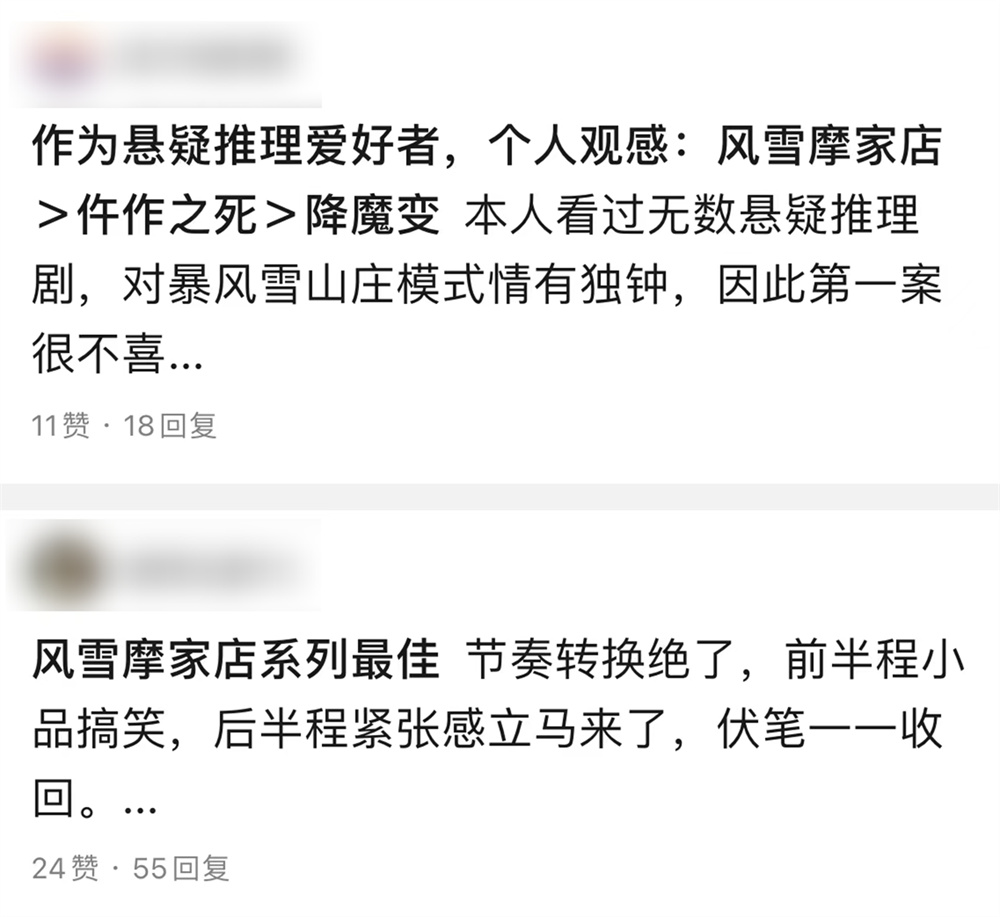
Douban's "Tang Dynasty Strange Stories" team believes that there are many best voices in "The Snowy Mo Family Store"
The time and space where the case occurred are highly concentrated: a nearly closed space (the "Snowstorm Manor" model), and the conflict occurred within one day.
Tang Gui's westward detachment set out from Shiyang County to Hanzhou. They encountered heavy snow on the way and chose to spend the night in an inn called Mojiadian.
The mysterious female innkeeper tried every means to make things difficult for the guests and not let them stay overnight. The first suspense is thrown out: Is there any unspeakable secret in the inn that makes things difficult for the guests?
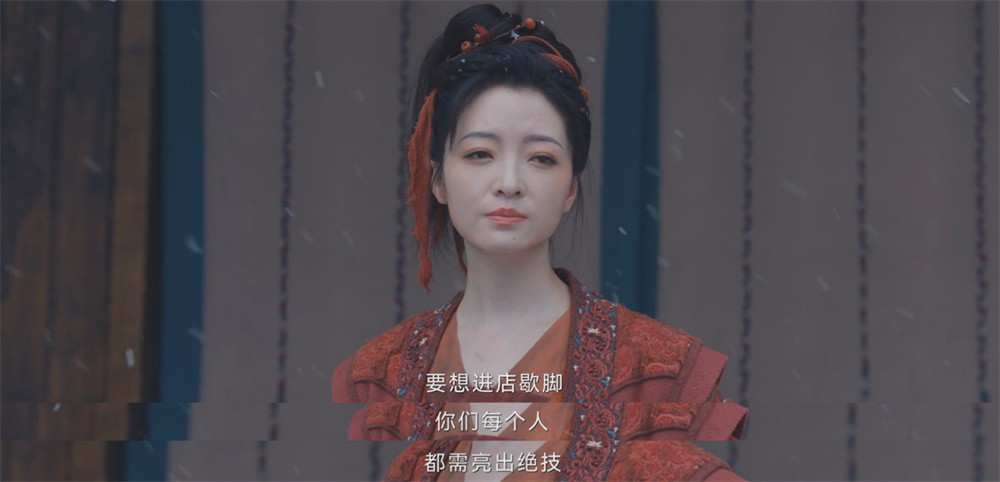
Female shop owner harasses tourists
The Jianke, Lan Juzi, Jia Buli, Mi Tuo and others who have already checked into the inn, as well as Jiang Shanren who will check in later, all have mysterious identities and strange behaviors. This is the second suspense: What are the origins and purposes of the people in the inn?
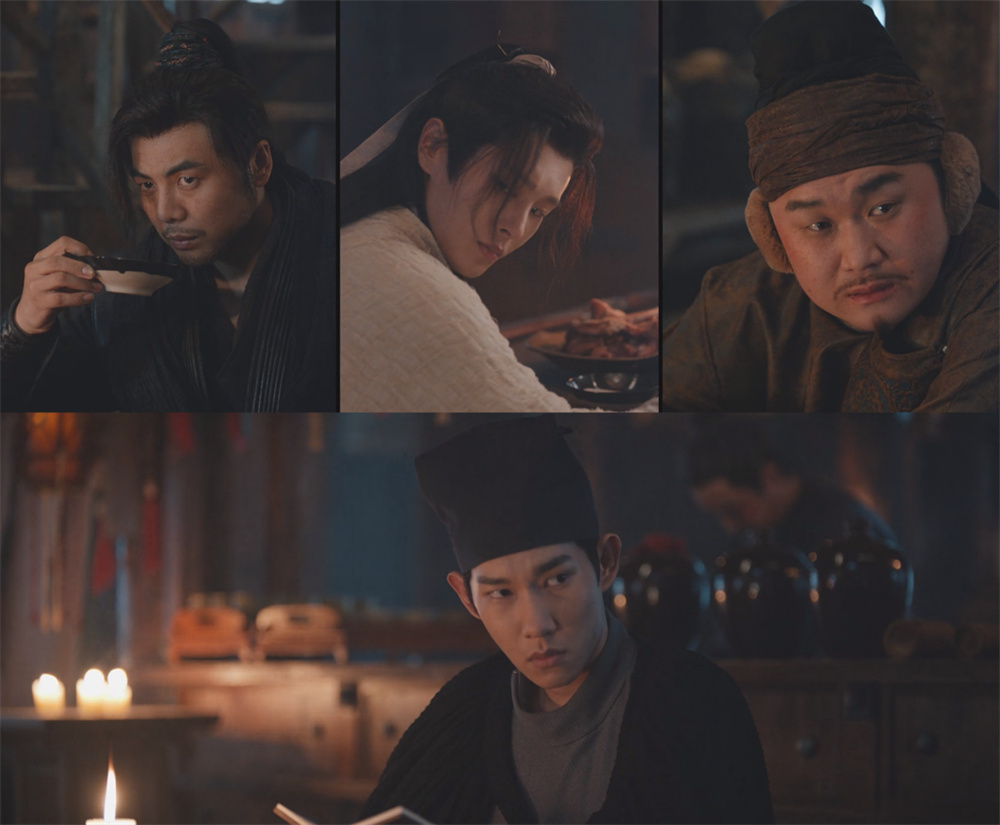
What are the purposes of everyone in the inn?
There is also a third suspense: why is the female owner so friendly and gentle only to Mr. Jiang?

The female shop owner is friendly to Mr. Jiang
As everyone was having dinner, the female shop owner suggested playing the Turo Knife Game, which was introduced from the Western Regions. The rules were similar to Russian roulette. Lan Juzi was provoked to participate and escaped a disaster, but the female shop owner was unfortunately stabbed to death. Did the female shop owner die easily? This is the fourth suspense.
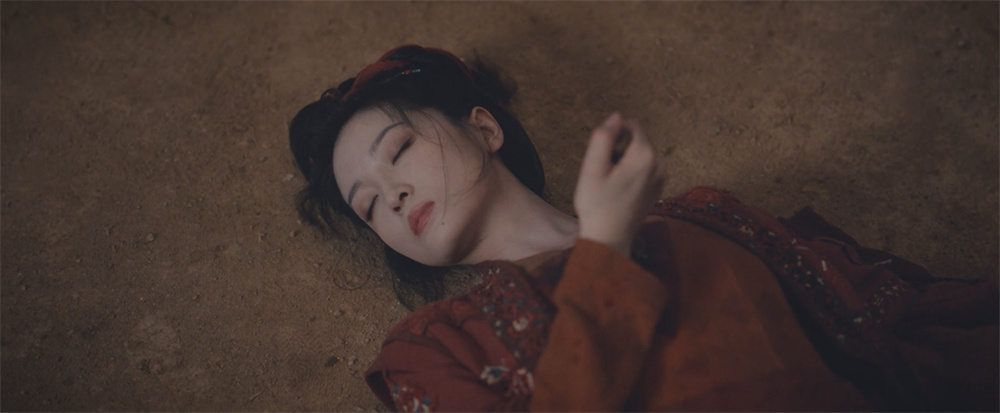
The female shop owner died, but she was still holding the knife?
Later, an unexpected guest came to the inn - Long Tai, a county lieutenant who claimed to be going to the capital to take up a post, and his entourage. Fearing that the officials would discover the death of the female innkeeper, they hid her body in a large wine jar and tried their best to cover it up. The fifth suspense: What is Long Tai's true identity?
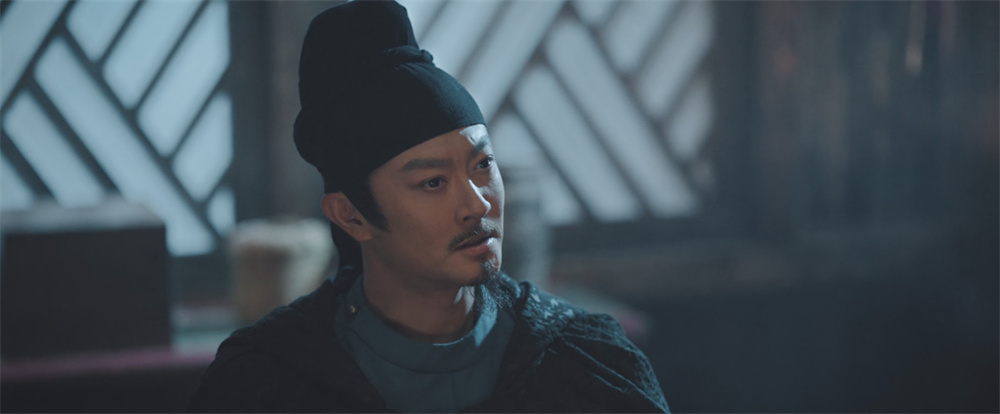
County Magistrate Ryuta
When Long Tai and his group were about to leave, the wealthy businessman Mi Tuo was killed in a mysterious ancestral hall. The sixth suspense: Who killed Mi Tuo?
Long Tai stayed to investigate the case and identified the suspect, Lan Juzi, by judging the footprints (the shoe prints Long Tai drew on the ground with a knife were more accurate than a ruler, a detail that could not withstand scrutiny). Lan Juzi only admitted that he stole Mi Tuo's property and refused to admit to murder. This brings us back to the sixth suspense: Who is the murderer who is "absent and present"?
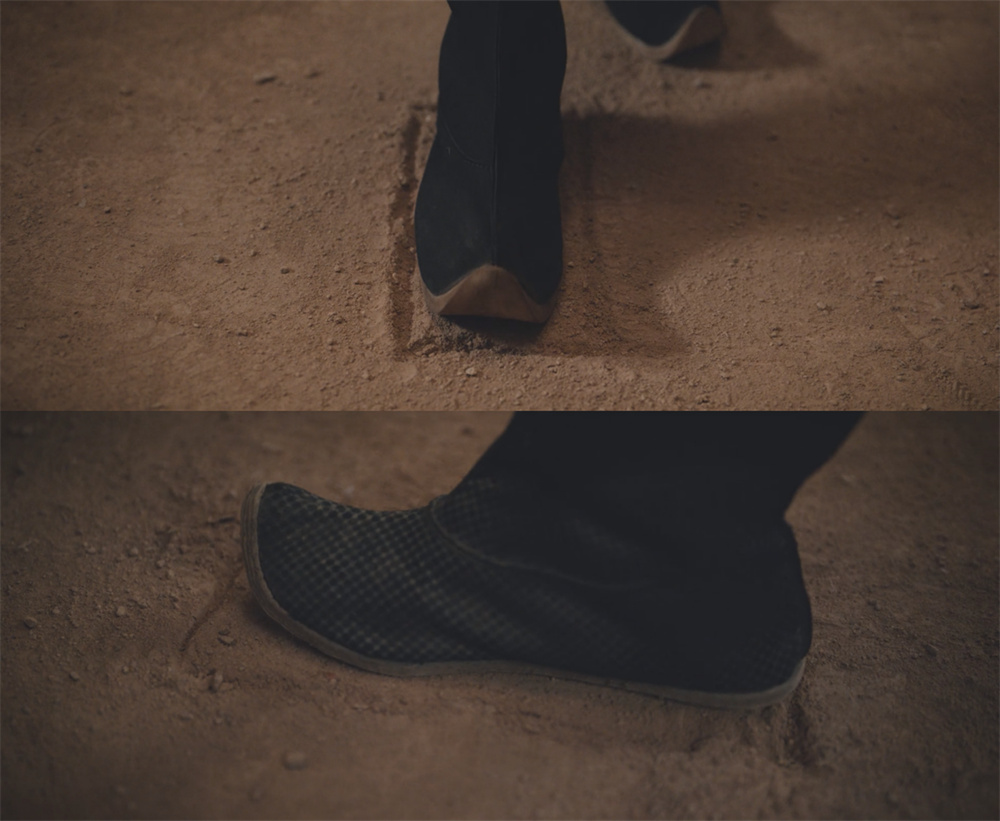
Please judge, which foot is the suspect's? (The answer is the second one, I don't know what the basis for the judgment is)
Long Tai and others were preparing to escort Lan Juzi away. Su Wuming and Lu Lingfeng then exposed Long Tai's identity as a fake county lieutenant and officially entered the investigation phase of the Tang Gui team.
The appeal of detective dramas comes from the ingenuity and rationality of the detective techniques, which require a strict logical system to support the reasoning process. Medical knowledge can be used to help solve the case, such as determining the cause of death through autopsy, identifying diseases and poisons; or relying on wisdom, observation and a deep understanding of human nature, logical reasoning to restore the course of events, such as observing the tiny traces left at the scene, analyzing the motives behind the characters' words and deeds, etc. No matter what method is used, it is necessary to ensure that each link can withstand scrutiny and avoid obvious logical loopholes or unreasonable plot jumps, so as to construct a detective story that is both exciting and convincing.
It is precisely at this point that the "Tang Dynasty Strange Stories" series is relatively simple in its approach. Back to "The Snowy Mo Family Store", the first thing to solve is the fifth suspense - Long Tai's true identity. The reason is that when Su Wuming complained about excessive taxes, Long Tai applauded, which is not in line with the identity of a county lieutenant, after all, collecting taxes is one of the duties of a county lieutenant; the second reason is that since Long Tai was going to the capital to take up his post, he didn't even know that there were six county lieutenants in Wannian County.
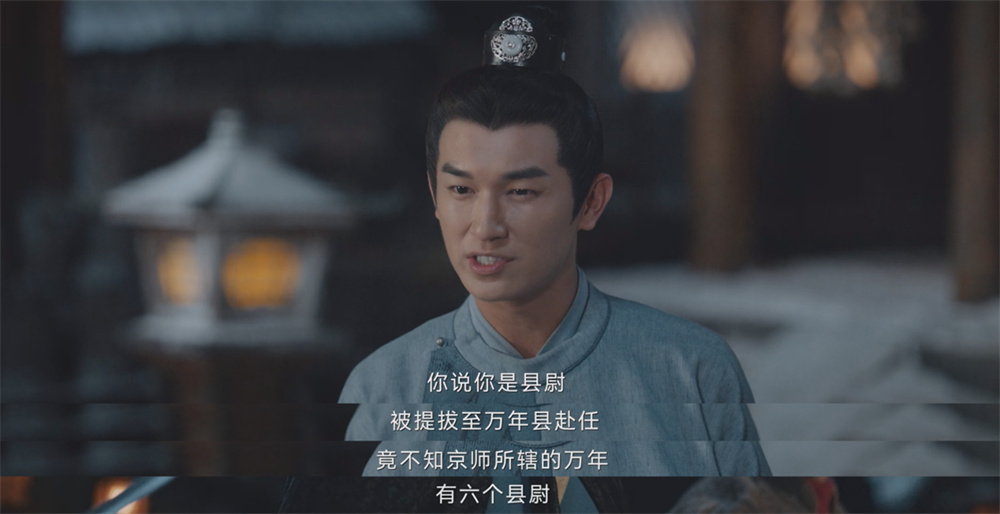
Long Tai's fake identity was exposed
This is indeed a method of investigating crimes: carefully listening to and analyzing the statements or confessions of those involved in the case, identifying logical inconsistencies, factual contradictions or emotional abnormalities, so as to distinguish right from wrong and promote the resolution of the case.
However, in detective dramas, it is not convincing enough to solve cases only through verbal loopholes. The parties may give inaccurate information due to memory errors, emotional influences, etc. If the detective does not have other forms of physical evidence or direct evidence to support it, the persuasiveness will be greatly reduced. In the drama, in order to reveal Long Tai's true identity, the screenwriter can only let him, who has been wandering around for many years, reveal his true identity.
Then the fourth mystery was solved: the female owner was not dead. When the wine vat was opened, no one was inside, and there was a secret passage at the bottom of the wine vat, through which the female owner escaped.
Su Wuming's reasoning about the "secret room is not secret" is indeed brilliant, but it directly leads to the possibility that the female owner faked her death, which still has a logical leap - how could the female owner predict that after she faked her death, everyone would hide her body in the wine jar? The play only gives such a reason through Lu Lingfeng, "This big jar has always had its lid open, maybe it is the place where the female owner deliberately left her body", which is too confusing.
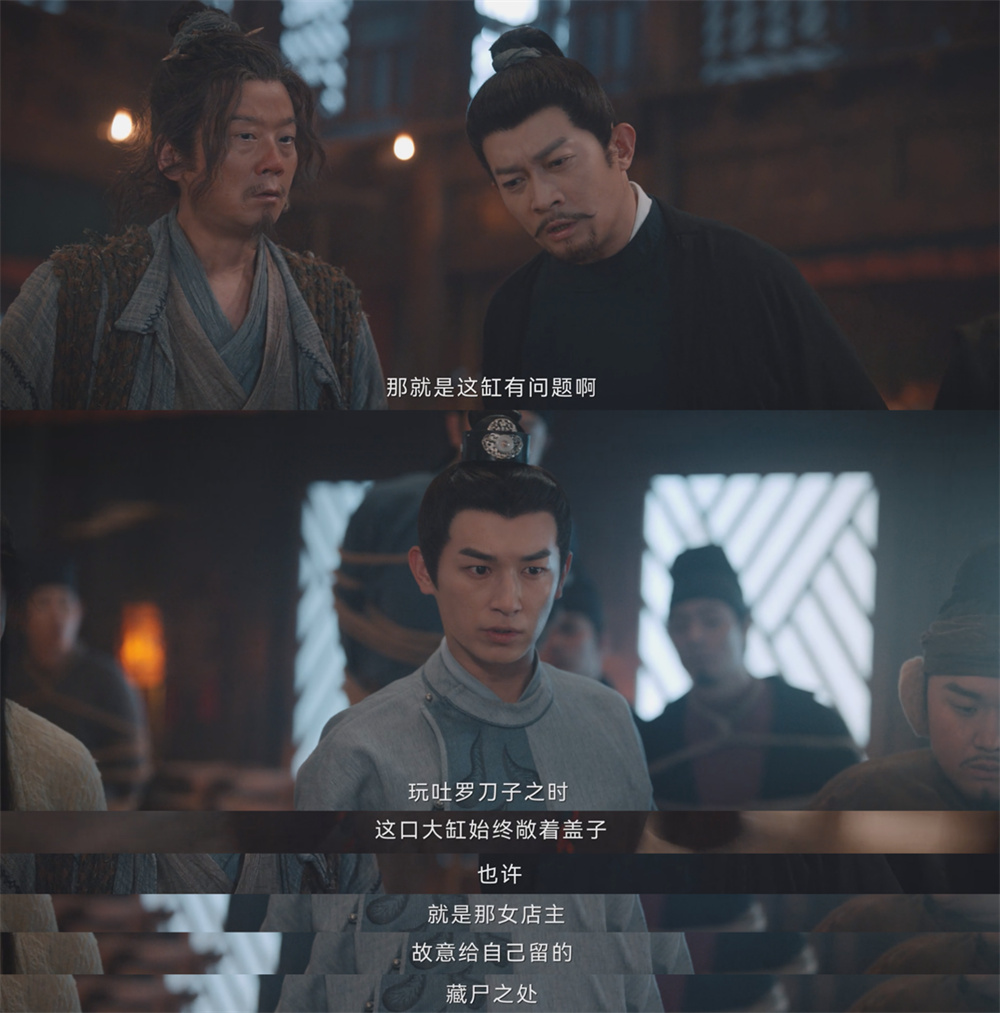
This is a kind of forced logic circle.
Afterwards, Su Wuming speculated that there was a treasure hidden in this place (the ruins of the Vajra Temple), and revealed the true identity of the female innkeeper and others: treasure hunters, that is, people who collect money to find treasures for their employers. The first suspense was also revealed. In order to hide the treasure hunt from others, the treasure hunter built an inn, but did everything he could to prevent others from staying in the inn.
Su Wuming's reasoning about the treasure here can be justified, but it should also be pointed out that the audience's sense of participation in this process is extremely weak, because Su Wuming has much more information than the audience. The screenwriter throws whatever he needs to crack to Su Wuming, and Su Wuming outputs information directly, and the truth is revealed. When the audience cannot speculate the direction of the plot through clues, and is always in a state of passively receiving information, there is no fun in reasoning.
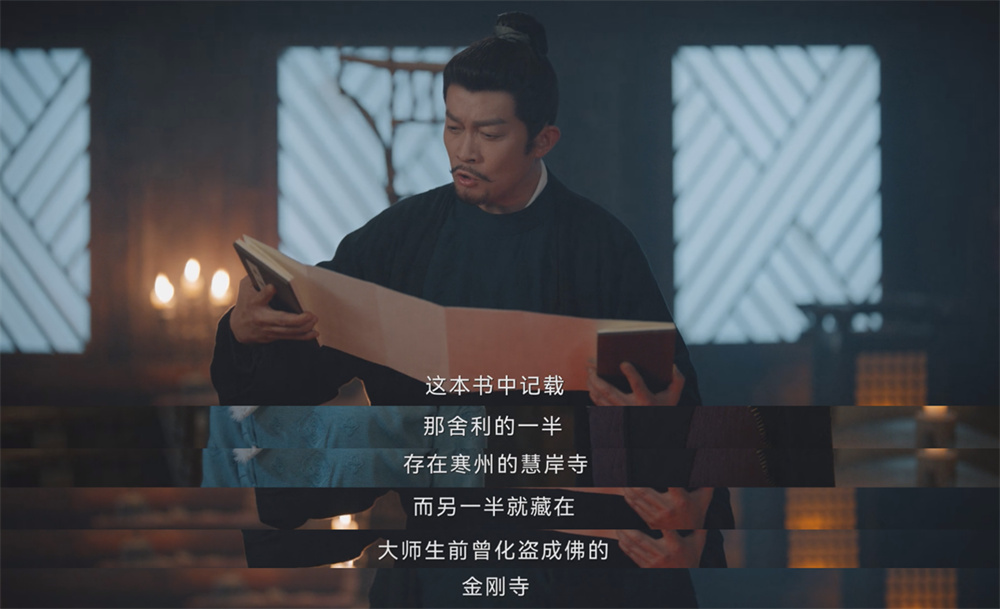
The characters in the play have much more information than the audience
By the way, the female innkeeper's method of not letting people stay in the inn is really "fancy tricks". If she really didn't want to let people stay in the inn, she could just let her men disguise themselves as tourists and fill up the inn, then she could refuse others to stay overnight.
The group entered the underground palace through a secret passage and saw the "resurrected" female shop owner and a group of treasure hunters led by her. Through the female shop owner's mouth, the audience learned that the female shop owner thought that Jiang Shanren looked very similar to her dead brother (her brother died when he was eleven years old). Therefore, the female shop owner did not kill others, but chose to fake her death (what a far-fetched reason). The third suspense was solved.
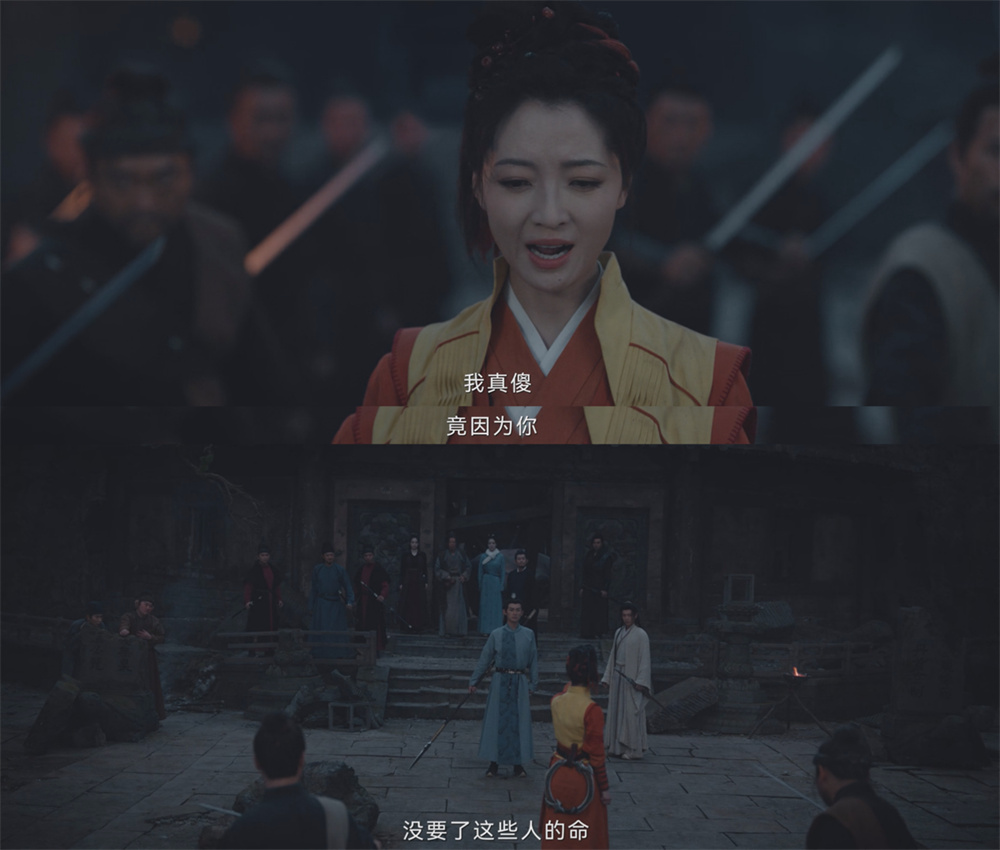
It's a bit stupid indeed.
After that, the treasure hunter also has a few lines to tell all his conspiracy over the years (including deceiving the female store owner). This practice of relying on the "bad guy" to confess or expose his shortcomings at the last minute not only violates basic human nature and criminal psychology, but also fails to show the role and wisdom of the detective.
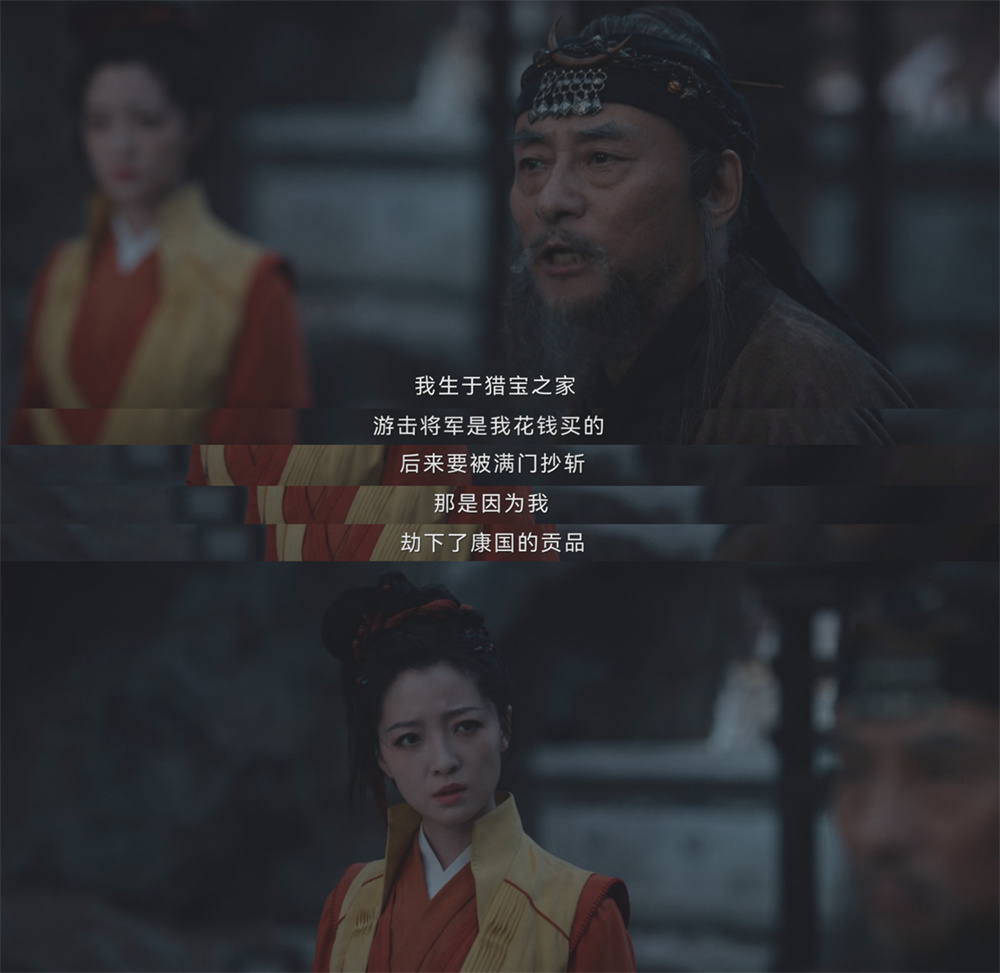
The treasure hunter revealed his dark history, and his motives are puzzling
After everyone worked together to defeat the treasure hunter, Lan Juzi and Jia Buli failed to assassinate Su Lingfeng. The second suspense was revealed. Everyone staying in the inn had a different identity and purpose. So far, the suspense of this unit has been completely resolved.
A glimpse of the whole picture shows that the advantages of the detective part of the "Tang Dynasty Weird Stories" series are that there are many suspense and reversals. The dense setting of suspense makes each episode have multiple mysteries to be solved, and the audience is always attracted by each mystery; just when the audience thinks they have seen through everything, a new clue or an unexpected event will overturn the previous assumptions. The frequent reversals have increased the excitement of the viewing experience to a certain extent.
But the shortcomings are also obvious: the logic is not rigorous, key information is basically output through dialogue, and the audience's sense of participation is weak.
Legends of strange things, each showing its magical powers
The part of the first and second seasons of "Strange Stories of the Tang Dynasty" that lacks detective stories is mainly supported by "strange stories", that is, "strangeness".
On the one hand, the series contains a large number of strange stories and folk tales from the Tang Dynasty notes novel "Youyang Miscellaneous" and other ancient documents. Various supernatural powers and strange phenomena add a strong fantasy color to the plot. For example, the "Demon King Escapes from the Wall" and "Demon King" kills people in the second season "Demon King Transformation", the illusion and monster Fu Shu in the "Wind and Snow Mo's Store" unit, the "Po Zhe" unit, and the "Tongtian Xi" unit.
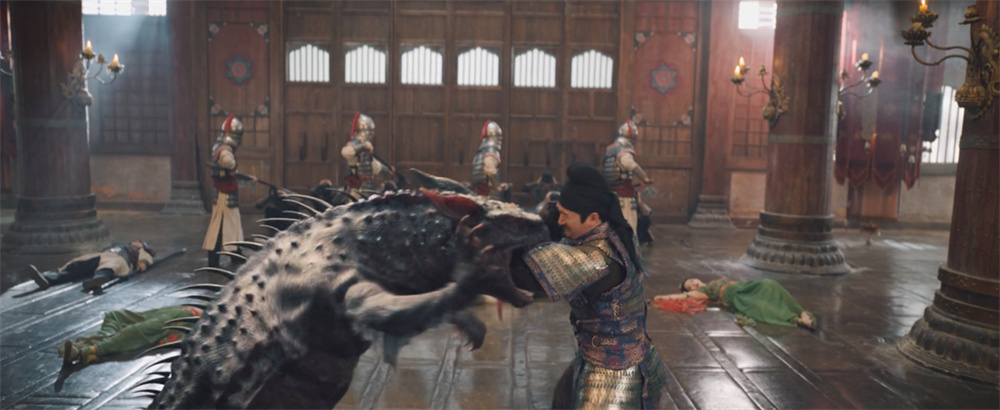
Monsters of Unit 1
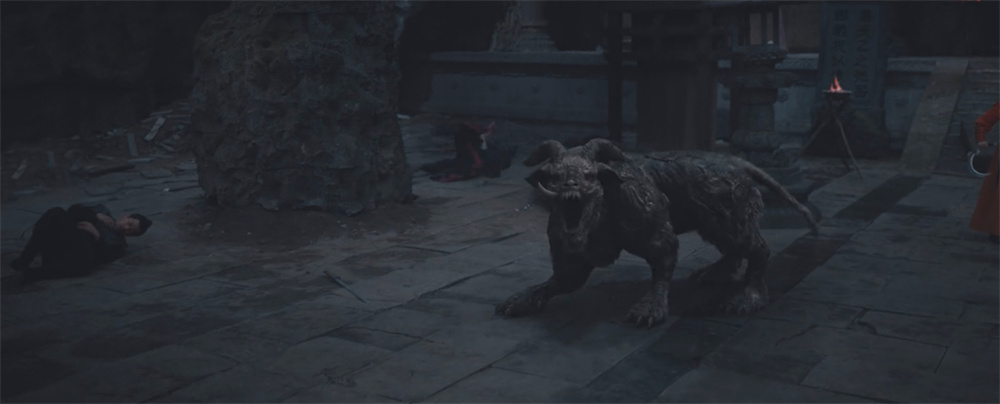
Unit 3 Monster Versu
Strange Stories are not fanciful, but combine the social customs, religious beliefs and folk legends of the Tang Dynasty to provide a relatively reasonable historical background. For example, the murals in "The Legend of the Demon King" are not only the crystallization of multiculturalism, but also reflect Buddhist and Taoist concepts such as gods and ghosts, immortals and Buddhas, karma, reincarnation, etc.
On the other hand, the film creates a strange atmosphere. Special effects are carefully used to present supernatural monsters or phenomena; dim light, foggy and rainy natural climate, and various bizarre ways of death create a gloomy and strange visual effect; the use of low music and ancient rhymes that come and go increases the tension and mystery of the story.
The first unit of "Strange Stories of the Tang Dynasty 2", "Conquering the Demons", has a relatively heavy element of "strangeness", while the "Death of a Coroner" and "Mo's Inn in the Snow and Wind" have less "strangeness", and what is more prominent is the charm of "Tang Dynasty legend".
Screenwriter Wei Fenghua explained on Weibo: "Although Tang Gui is a unit drama, each unit has a different function in the whole drama. Because of the different functions, the specific type of each unit is also different. The opening unit is often legendary, and the following units may focus on the case itself or on strange stories. But overall, they all use the form of strange stories and detective stories to revolve around the spiritual core of 'Tang Legend'."
There are two "legends" in this passage, and their meanings are not the same. The first "legend style" refers to the bizarre, strange, and strange, which is the "weird" in the play, and tends to be strange stories; "Tang legend" is a special noun, referring to a short story form in the Tang Dynasty. Compared with the notes novels of the Han, Wei, and Six Dynasties (such as various strange stories), Tang legends cover a wider range, including strange stories, market life, joys and sorrows, and pay more attention to the integrity of the plot and the portrayal of the characters, and have higher artistic value.
This is exactly what "Strange Stories of the Tang Dynasty 2" pursues: it is not just about detective stories and strange stories, this season will show more of the human side of the "Tang Dynasty Legends".
Therefore, "The Death of a Coroner" not only presents the noble profession of coroner and its endless inheritance, but also the brilliance and warmth of human nature - the deep love between Dugu Yang and Chun Tiao touched many audiences.
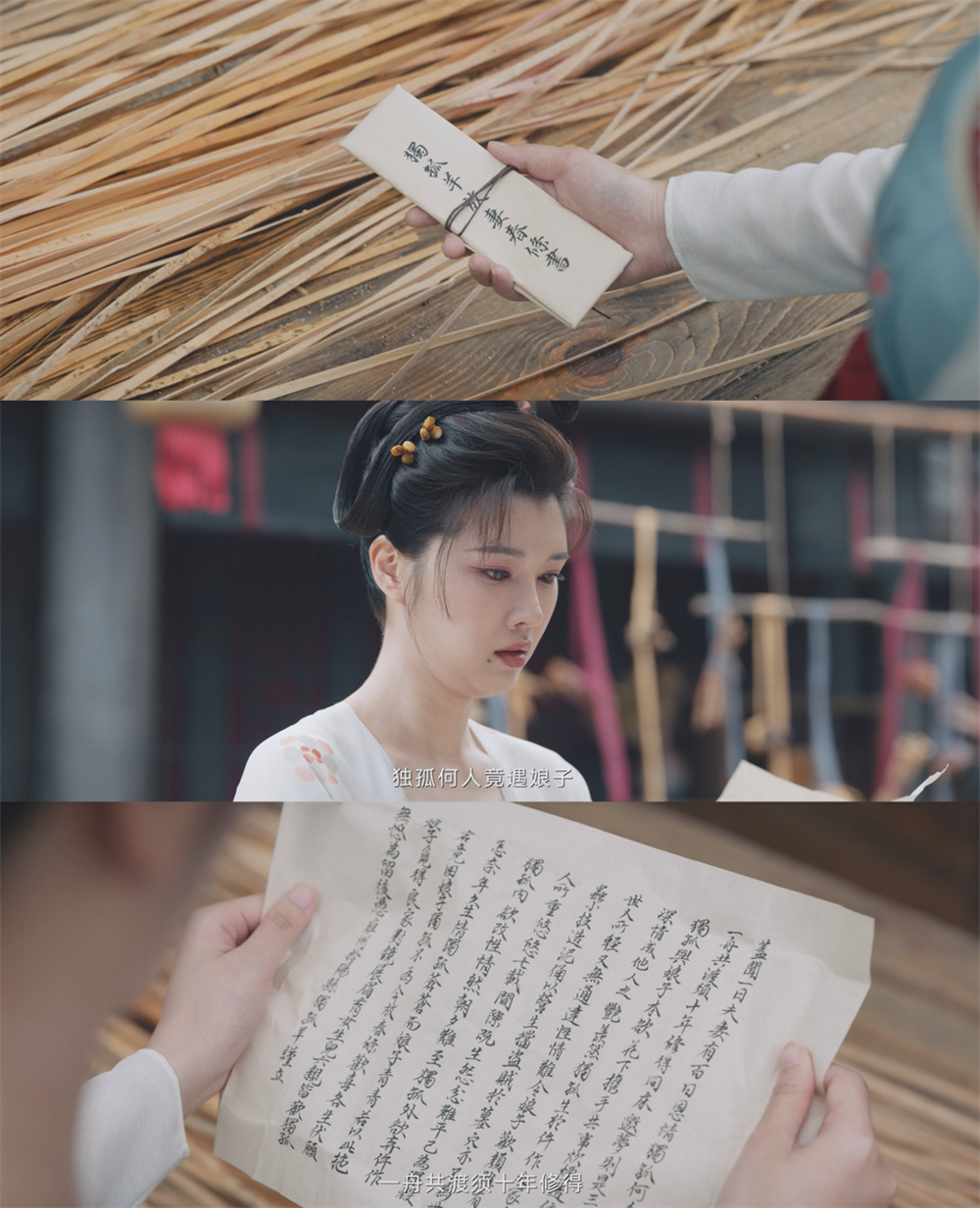
This divorce letter has been widely discussed online
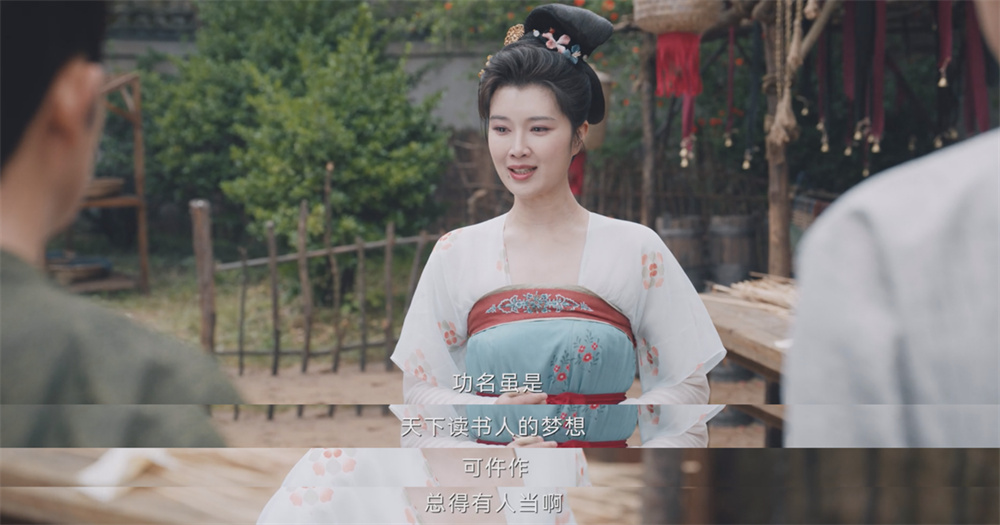
Harujo becomes a coroner
"Mo's Inn in Snow and Wind" has a strong martial arts flavor. It is not only the martial arts atmosphere created by the windy and snowy night, the mysterious inn, the dusty travelers, and the wonderful martial arts scenes, but also the chivalrous spirit expressed by Long Tai and others in this unit, as well as the thinking on the relationship between knights and thieves.
But no matter whether it is a strange story or a legend, they are all attached to a more important historical background, that is, the power struggle between Princess Taiping, Crown Prince Li Longji and Emperor Ruizong of Tang Li Dan. Princess Taiping's desire to maintain or even expand her power in the court caused conflicts between her and her nephew Li Longji, and Emperor Ruizong of Tang also realized that the power struggle between the princess and the crown prince posed a threat to the imperial power.
Therefore, some cases in the "Tang Dynasty Weird Records" series, which seem to be ordinary crimes on the surface, are actually deliberately created by Princess Taiping or other political forces in order to achieve a certain purpose, or other forces took advantage of the conflict between the prince and the princess to create murders. In the process of investigating the case, Su Wuming and others often face pressure or interference from high-level officials. The Tang Weird Squad has to consider political factors and make a difficult balance between finding out the truth, protecting themselves and maintaining political stability.
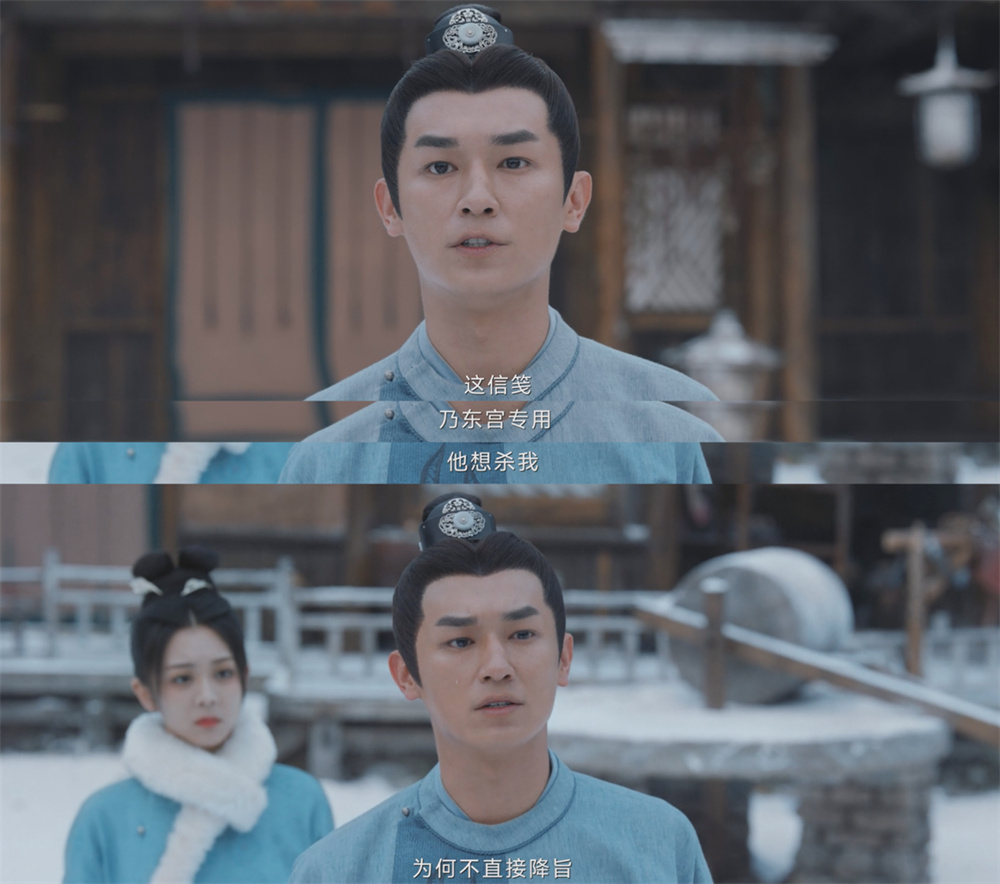
Lu Lingfeng is caught up in the political whirlpool
For example, in the "Conquering the Demons" unit, the surface story is: Princess Taiping prayed for Wu Zetian's afterlife through painting murals, revealing her ambition to emulate her mother and strive for the pinnacle of power; the villain Feng Han took advantage of the conflict between the prince and the princess to create a murder case involving the demon king, making them suspicious and fighting each other, and attempted to catch them all in one fell swoop, but his conspiracy was eventually thwarted by Su Wuming and others.
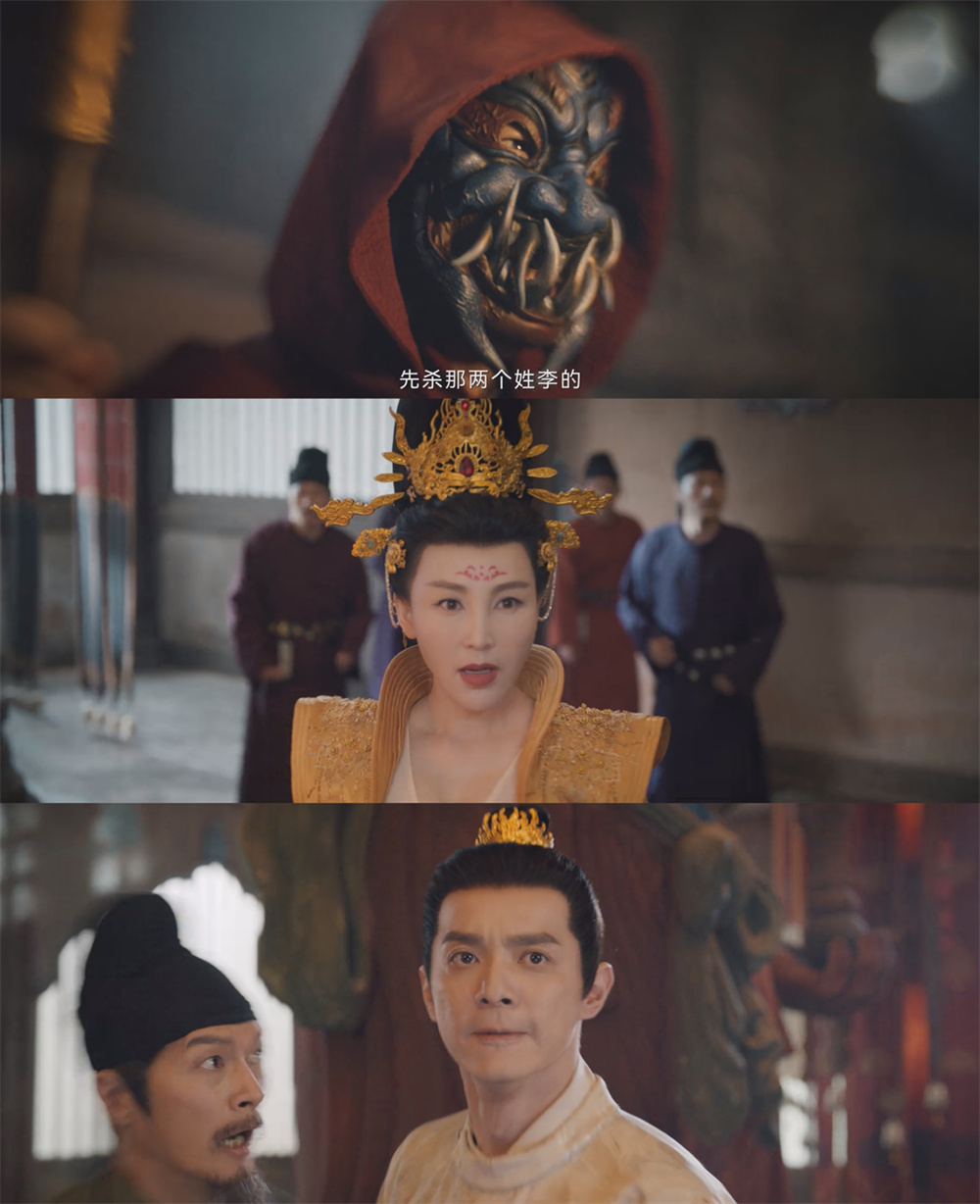
The princess and the prince were almost killed
But if the audience "over-interprets", Feng Han may also be a man of Emperor Ruizong of Tang, who used the legend of the demon king escaping from the wall to destroy the murals and undermine the political influence of Princess Taiping. Later, when the princess and the prince watched the demon-conquering transformation, he used Feng Han's hand to completely eliminate them and secure the throne.
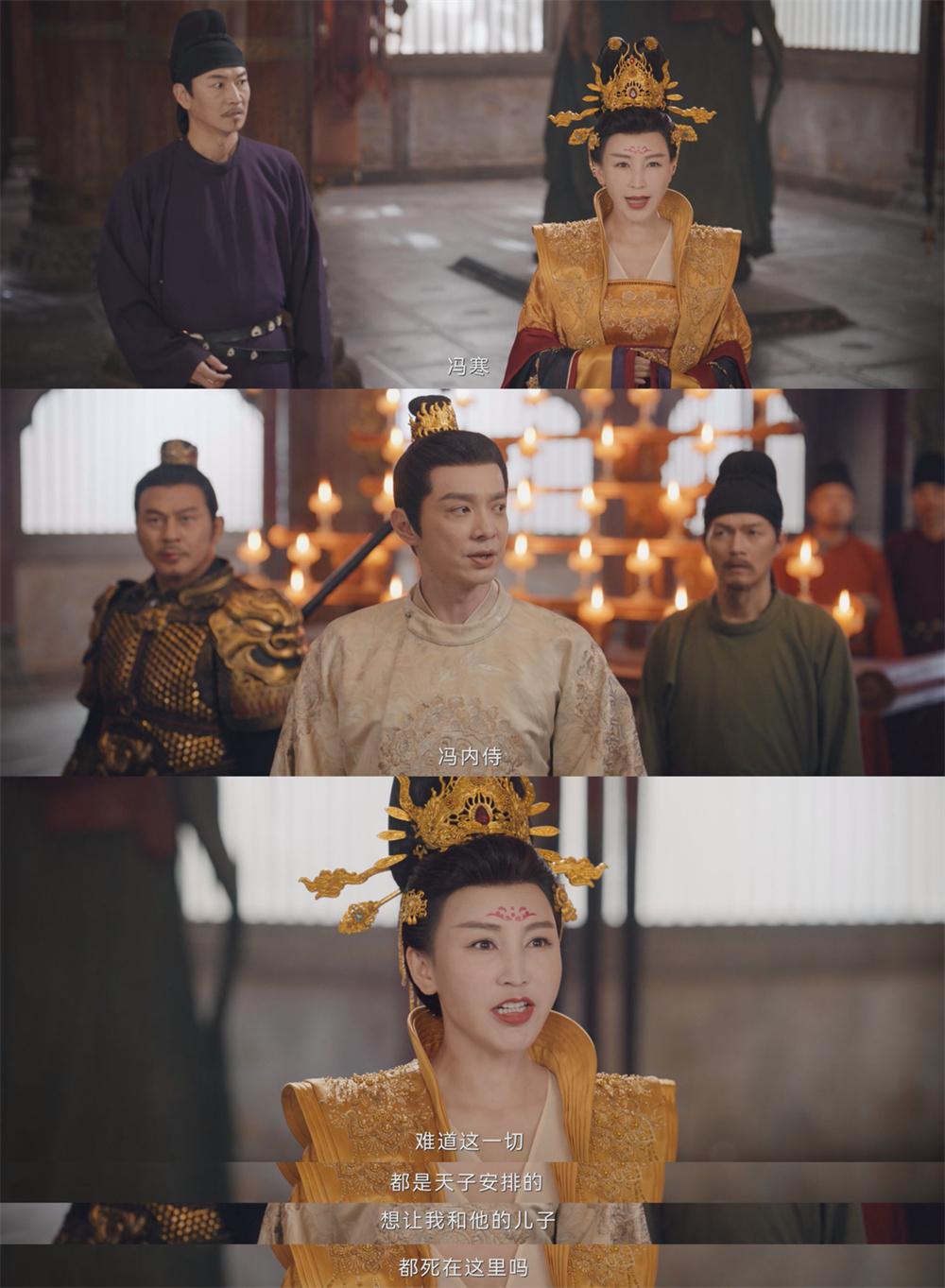
Is the emperor the mastermind? Su Wuming denies it
The "Tang Dynasty Strange Stories" series not only provides a series of gripping detective stories, but also shows how justice and truth are weighed and compromised in an era full of power struggles, and how the suffering of the people is covered up in the so-called "Golden Age of the Tang Dynasty". Strange stories and legends not only show their magical powers, but also contain certain historical reflections.
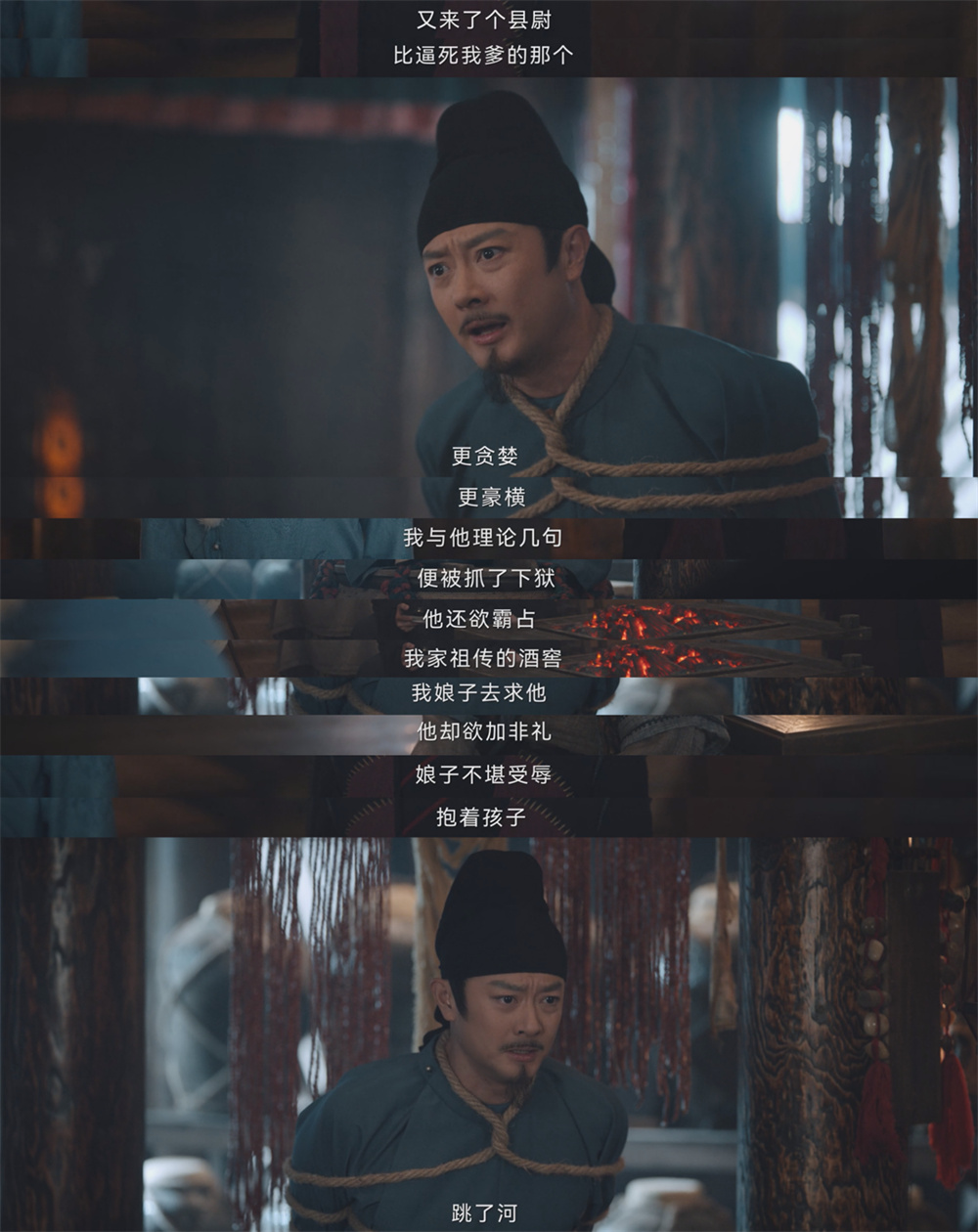
Under the so-called prosperous times, how many people are suffering
This adds a layer of tragedy to the series, and also allows the "Strange Stories of the Tang Dynasty" series to continue the valuable tradition of excellent works such as "The Inspector General of the Song Dynasty". Although it does not reach the same ideological height, it does allow the audience to hear the heavy sighs of history to some extent.


